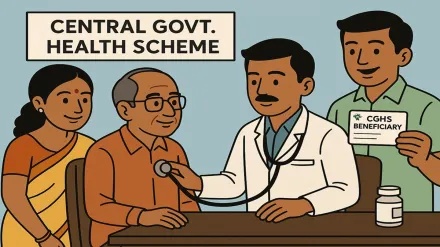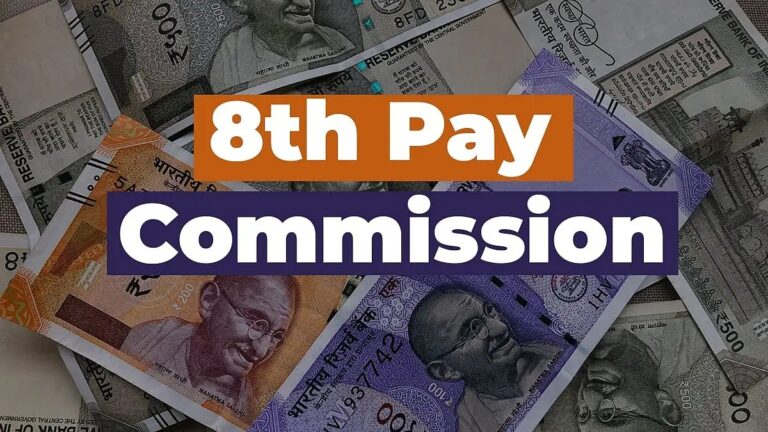
Key Policy Update Ensures Healthcare Access for Central Government Employees
The Ministry of Health & Family Welfare has issued a groundbreaking directive ensuring that all central government employees whose salaries have monthly deductions for the Central Government Health Scheme (CGHS) will automatically receive service cards. This decision addresses a long-standing issue where employees contributed to the scheme without applying for cards, thereby missing out on essential healthcare benefits. The directive mandates that departments must issue CGHS cards to such employees, regardless of whether they have formally requested them. This policy shift aims to eliminate administrative barriers and ensure equitable access to healthcare services for thousands of government workers. The move underscores the government’s commitment to improving welfare systems for its workforce, particularly in a scheme that has been a cornerstone of employee benefits for decades. By streamlining the card issuance process, the ministry is prioritizing convenience and fairness, ensuring that financial contributions translate directly into tangible healthcare advantages for employees.
Clarification on Mandatory Contributions and Automatic Card Issuance
The directive clarifies that CGHS is a mandatory scheme, with contributions automatically deducted from the salaries of employees residing in designated CGHS dispensary areas. This eliminates the need for separate applications, as the scheme is designed to provide healthcare coverage to those already enrolled through their employment. The ministry emphasized that denying benefits to employees merely because they haven’t applied for a card is both unjust and counterproductive. The new office memorandum instructs all ministries and departments to issue cards automatically, with administrative branches tasked to monitor compliance. Employees who ignore repeated notifications about card issuance will face disciplinary action, ensuring accountability. This policy not only simplifies the process for employees but also strengthens the government’s ability to manage healthcare benefits efficiently, reducing bureaucratic delays and ensuring timely access to medical services.
Impact on Central Government Employees and Healthcare Accessibility
The decision is a significant relief for central government employees who have been contributing to CGHS without formal card applications. Previously, many workers faced the inconvenience of navigating administrative hurdles to access healthcare facilities, despite their contributions. The new directive shifts responsibility to the employing departments, which must now proactively issue cards to ensure uninterrupted benefits. This change aligns with broader efforts to enhance employee welfare and streamline public service delivery. By automating card issuance, the government is also reducing the risk of fraud and ensuring that benefits reach the intended recipients. The policy highlights the importance of integrating welfare systems with employment structures, ensuring that financial commitments translate into practical support. For employees, this means greater peace of mind, knowing that their contributions are directly linked to healthcare access without the need for additional paperwork.
Policy Context and Broader Implications for Welfare Schemes
The CGHS directive reflects a growing trend in government policy to prioritize employee welfare through streamlined administrative processes. By mandating automatic card issuance, the ministry is setting a precedent for other welfare schemes, potentially influencing how benefits are distributed across various sectors. The policy also addresses concerns about equity, ensuring that no employee is disadvantaged due to bureaucratic inefficiencies. While the decision primarily affects central government employees, it sets a benchmark for transparency and accessibility in public service delivery. As the government continues to refine its welfare frameworks, this directive serves as a model for balancing administrative efficiency with employee rights. The emphasis on automatic benefits underscores a shift toward more inclusive and user-friendly systems, where contributions are directly tied to tangible outcomes, fostering trust and satisfaction among government workers.
Future Outlook and Recommendations for Implementation
Experts suggest that the successful implementation of this policy will depend on robust monitoring mechanisms to ensure departments adhere to the new guidelines. Regular audits and feedback loops with employees can help identify and resolve any bottlenecks in the card issuance process. Additionally, the ministry should consider expanding this model to other welfare schemes, such as pension or housing benefits, to create a more integrated support system for government employees. Training for administrative staff on the updated procedures will also be critical to avoid confusion and ensure smooth execution. As the government continues to prioritize employee welfare, this directive serves as a reminder of the importance of aligning policy with practical needs. By removing unnecessary barriers, the ministry is not only improving healthcare access but also reinforcing its commitment to a more responsive and equitable public service framework.



